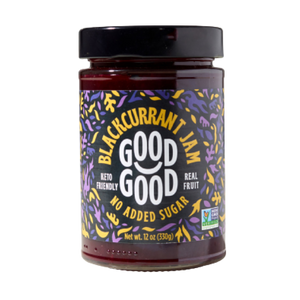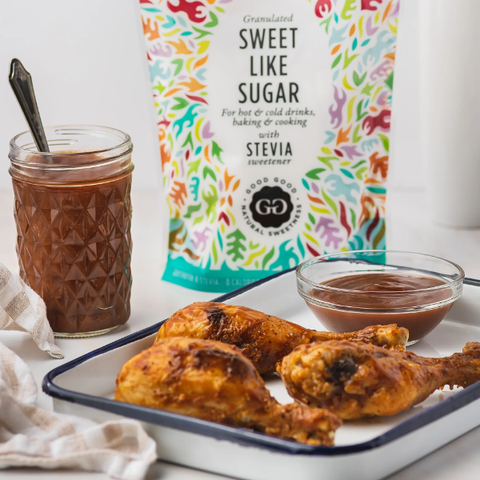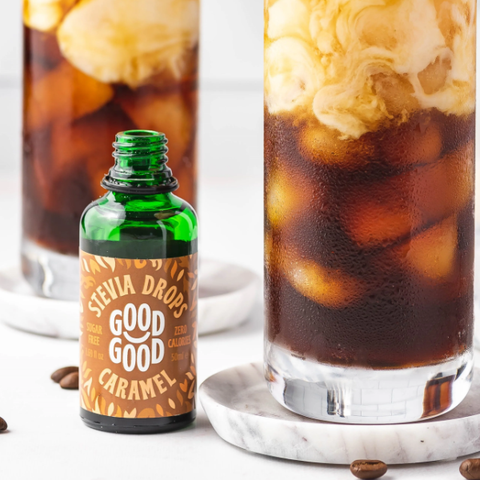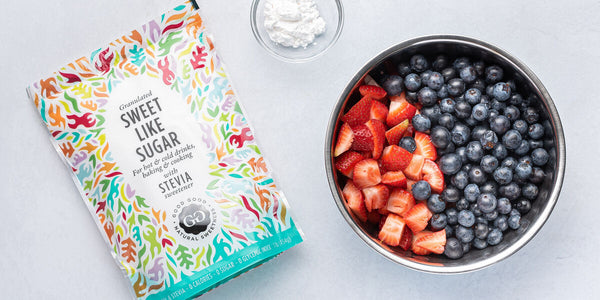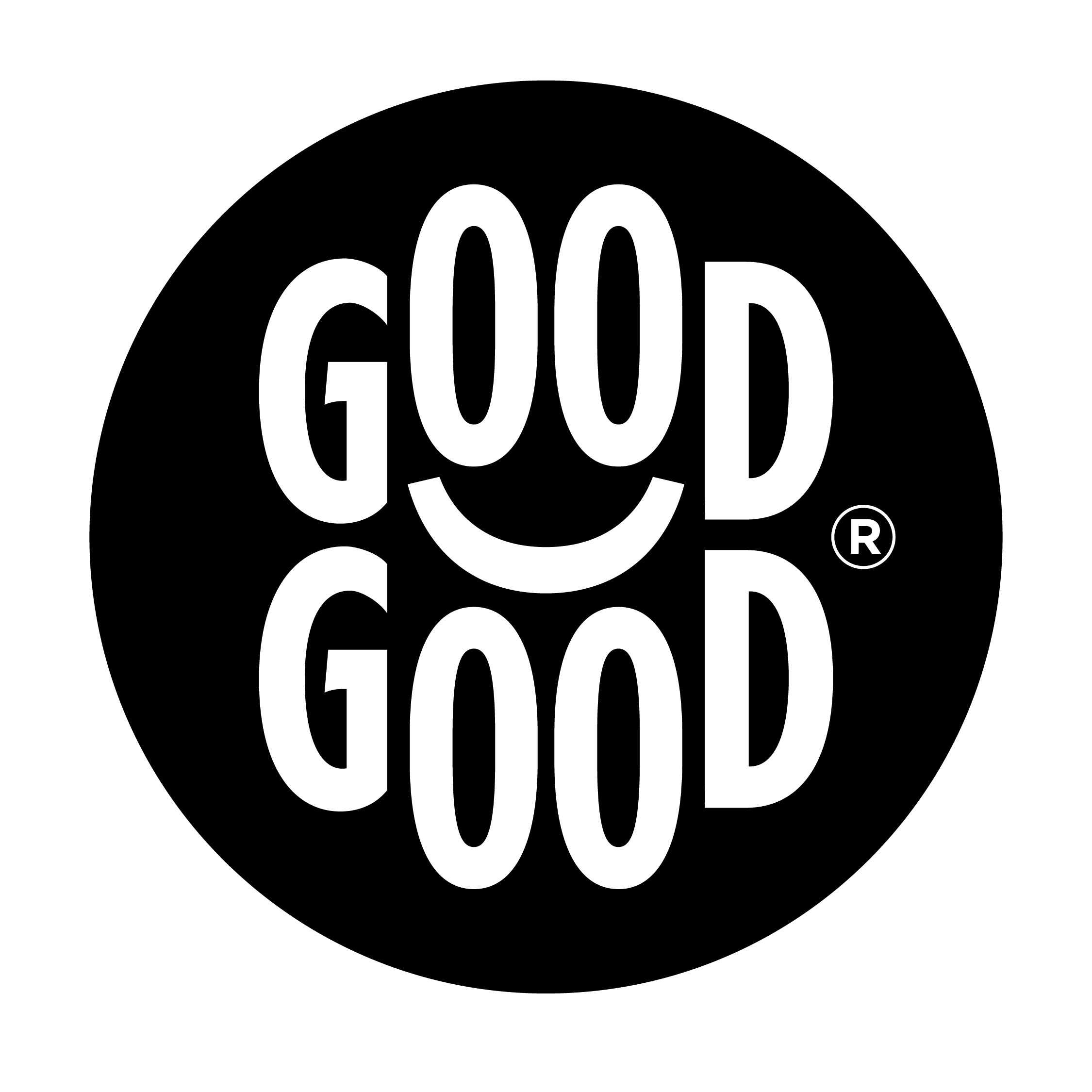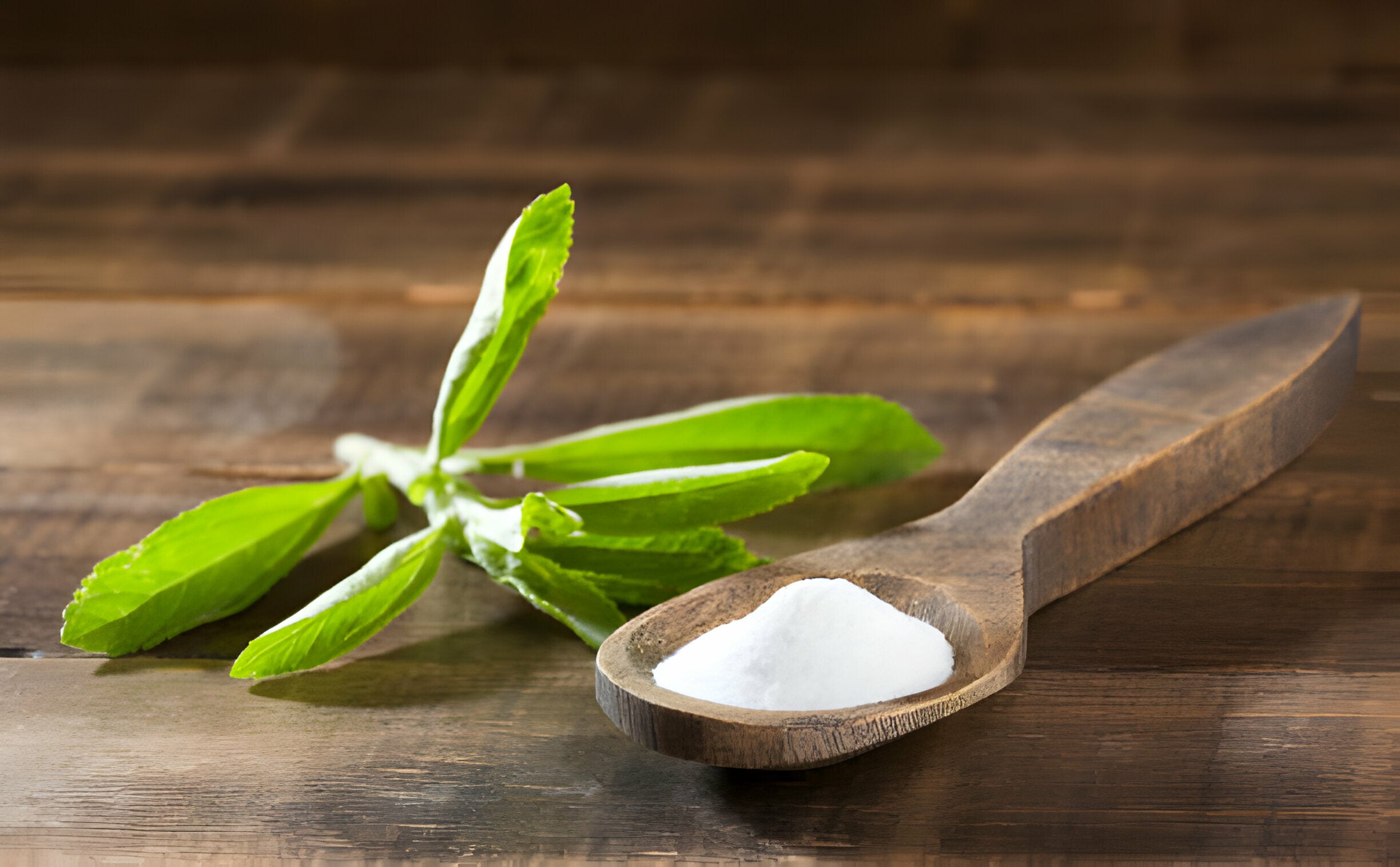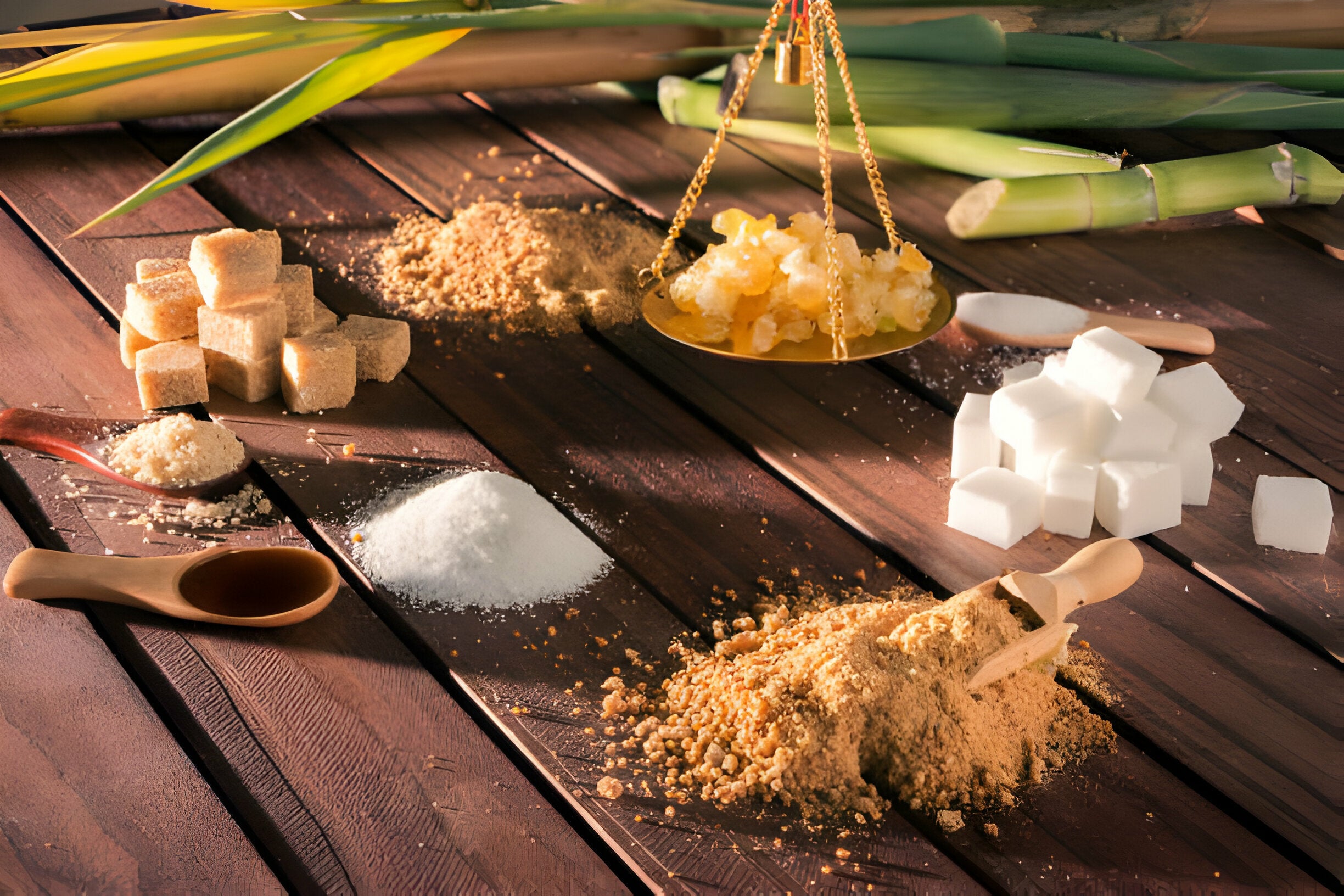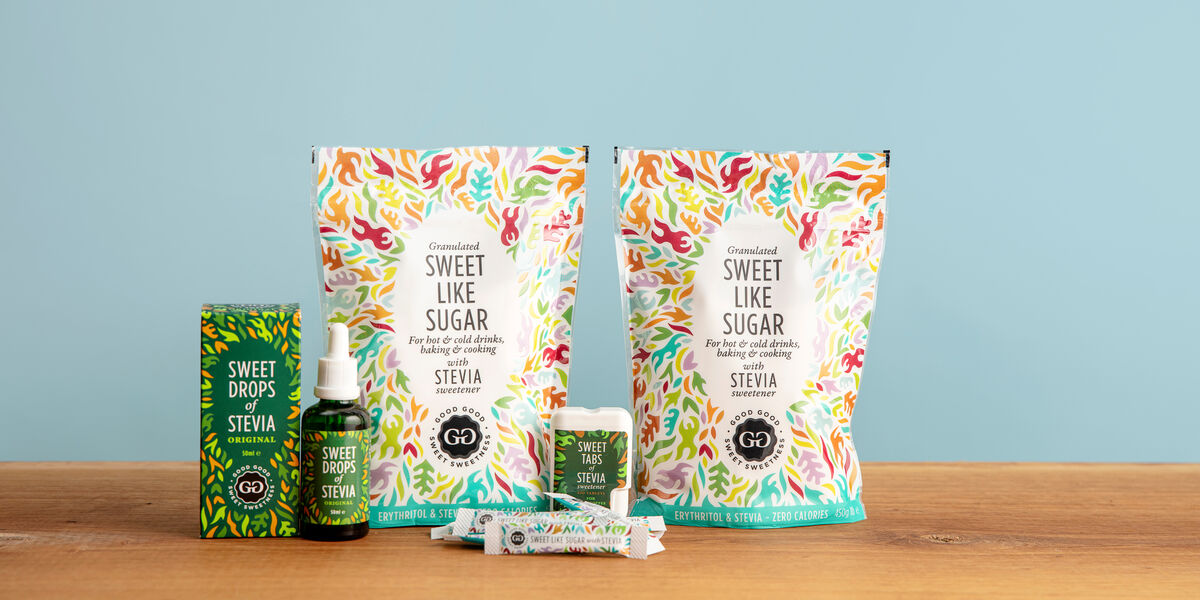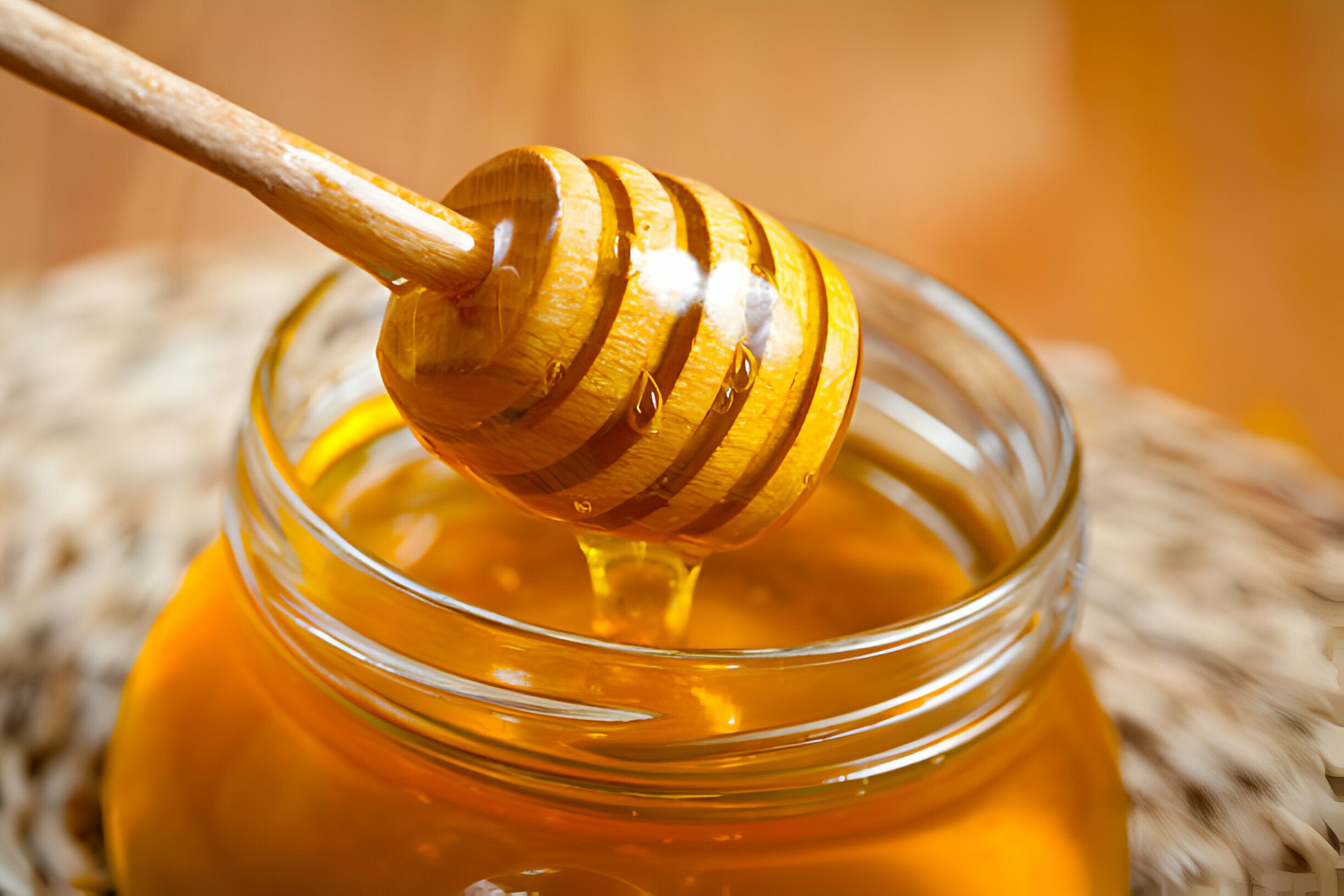Welcome to our GOOD GOOD guide, where we answer an important question: Is sugar healthy?
The truth is, while natural sugars in fruits and vegetables are fine in moderation, refined sugar and artificial sweeteners can be harmful and impact your wellness negatively.
In contrast, we champion the use of natural sweetener like stevia and erythritol, found in our products such as Sweet Like Sugar and vanilla stevia drops. These alternatives are nutrient-rich while providing you with the flavor you crave.
Join us as we delve into the effects of refined sugar on the body and explore healthier substitutes that are delicious and nutritious.
What this article covers:- Is Sugar Bad for You?
- Should I Cut Sugar From My Diet?
- What Is Sugar's Role in the Body?
- What Does Too Much Sugar Do to Your Health?
- What Are Sugar Substitutes?
- How Much Sugar Can We Eat?
- How to Spot Added Sugars in Processed Foods
- What Are Some Sweet Ways to Stay Healthy?
Is Sugar Bad for You?
While our bodies need sugar in some form for energy, not all sugars are good for you.
This is the case with refined sugars, especially those added to manufactured foods and beverages.
Our investigation demonstrated that excessive intake of processed sugar can lead to:
- obesity
- heart disease
- type-2 diabetes
- certain forms of cancer
Conversely, natural sugars, which are found in fruits and vegetables, can play a significant role in achieving a robust lifestyle.
Our findings show that they have numerous benefits, such as:
- lowering cholesterol
- strengthening your immune system
- improving digestion
- encouraging healthy skin
At GOOD GOOD, we understand the importance of reducing refined sugar intake without sacrificing sweetness.
That's why we offer you alternate sugars, helping you enjoy your favorite flavors while maintaining a balanced diet.
Should I Cut Sugar From My Diet?
Not entirely, but we do recommend limiting added sugar to less than 10% of your daily calories.
Added sugars can be found in processed foods and drinks and unlike natural sugars, they don't offer any nutritional advantages.
In contrast, natural sugars can be found in fruits, plants, and milk, offering you a wealth of nutrients like:
- fiber
- vitamins
- minerals
- antioxidants
Remember, it's about moderation, not deprivation.
Enjoying our sweeteners can help you maintain this balance and contribute to a healthier lifestyle.
What Is Sugar's Role in the Body?
Sugar, a form of carbohydrates, is a source of energy for the body. It breaks down into glucose (a type of monosaccharides), which is then used by our cells.
For example, glucose contributes positively to brain functionality and inhibits:
- thinking
- memory
- learning
Glucose can also be found in fruits, which you can enjoy a variety of in our 99% sugar free jelly range.
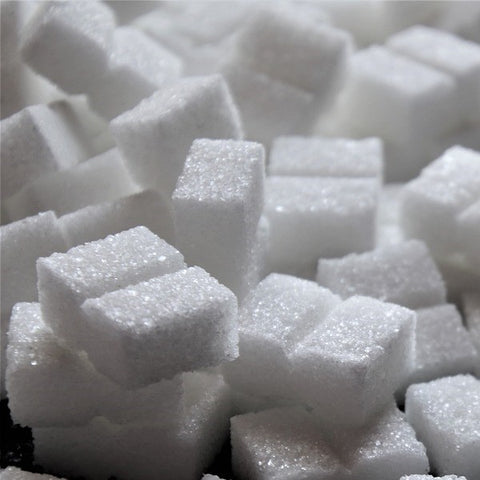
What Does Too Much Sugar Do to Your Health?
Added sugars contribute no nutritional value and can lead to health issues when consumed in excess.
Impact On Your Heart
Our research indicates that high sugar consumption can potentially lead to increased risks of cardiovascular diseases, resulting in symptoms such as:
- inflammation
- elevated blood pressure
- fatty liver disease
As a result, the American Heart Association suggests limiting added sugars in your diet to reduce the risk of heart-related issues.
This translates to consuming approximately 9 teaspoons (36 grams) of added sugar per day for men and 6 teaspoons (25 grams) for women
Your Weight And Sugar
Foods high in added sugars tend to be calorie-dense yet nutrient-poor, which can lead to weight gain.
Moreover, added sugars contribute significantly to obesity, a leading risk factor for various chronic conditions, including diabetes and cardiovascular disorders.
At GOOD GOOD, we advocate for lowering your added sugar intake by offering naturally sweetened alternatives.
As per our expertise, our stevia drops help satisfy sweet cravings without the negative impacts of added sugars, supporting your journey towards a healthier weight and overall well-being.
What Are Sugar Substitutes?
Sugar substitutes are alternatives to regular sugar that provide sweetness while typically offering fewer calories.
Table: Sugar Healthy Substitutes
|
Category |
Characteristics |
Examples |
|
Sugar Alcohols |
|
|
|
Artificial Sweeteners |
|
|
|
Novel Sweeteners |
|
|
Sugar Alcohols
As the best low carb sweetener, sugar alcohols, such as erythritol, xylitol, and sorbitol, are carbohydrates that typically occur in certain fruits and vegetables.
They're lower in calories than regular sugar and have a lesser effect on blood glucose levels, making them a popular choice in our GOOD GOOD products.
Take our Sweet Like Sugar natural sweetener (made with erythritol), for instance.
Our team discovered through using this product that it's diabetic-friendly, and has versatile application in baking and cooking.
Additionally, it suits numerous diets, such as:
- keto
- vegan
- vegetarian
Artificial Sweeteners
Artificial sweeteners like aspartame, sucralose, and saccharin are synthetic sugar substitutes.
They're much sweeter than processed sugar and contribute minimal calories when added to foods and drinks. They can be an effective way to decrease sugar intake and control weight or blood sugar levels.
However, studies show that certain artificial sweeteners can exacerbate existing medical conditions such as phenylketonuria or Irritable Bowel Syndrome (IBS).
We at GOOD GOOD understand that many consumers prefer natural options as a result of the potential dangers of artificial sweeteners.
That's why we focus on creating products sweetened with ingredients that offer essential flavors without utilizing harmful chemicals or negatively impacting your wellbeing like artificial sweeteners often do.
Novel Sweeteners
Novel sweeteners, including stevia and monk fruit extracts, are derived from natural sources and renowned for their health benefits and lower calorie content.
Unlike artificial sweeteners, they're not synthetic and are known for their rich nutritional profile.
If you're looking for a stevia substitute for Splenda, then we've got you covered with our sweet leaf stevia drops.
After putting them to the test, it's a versatile product that's infinitely sweeter than refined sugar and healthier than Splenda.
By choosing GOOD GOOD, you're opting for sugar substitutes that can help you maintain a balanced diet without sacrificing taste.
How Much Sugar Can We Eat?
Reducing Sugar In Drinks
Here how to place minimal sugar in your beverages:
- Choose water, low-fat milk, or sugar-free drinks over sugary, fizzy sodas.
- Only consume 150 milliliters of natural fruit juices (which have a high sugar content) a day.
By incorporating GOOD GOOD's sweeteners with no added sugar into your beverages, you can enjoy the sweet flavors while aligning with healthier living standards.
Reducing Sugar In Food
This is how you can reduce sugar in food without sacrificing taste:
- Swap high-sugar spreads for GOOD GOOD's jams and jellies on your toast.
- When baking, lower the amount of refined sugar in recipes and use a natural sweetener like monk fruit or our stevia drops instead.
By following these guidelines and incorporating our products into your diet, you can enjoy delicious flavors while supporting overall well-being and preventing the risk of chronic diseases.
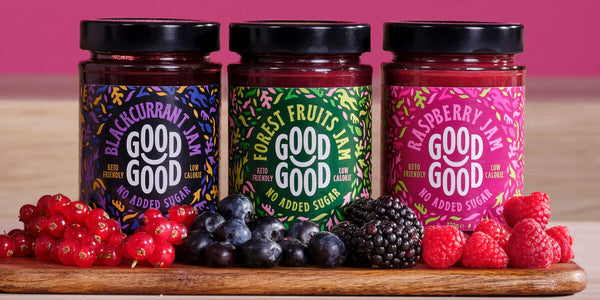
How to Spot Added Sugars in Processed Foods
You can use the following GOOD GOOD tips to identify added sugars in processed foods:
- Read The Label: Added sugars can appear under various names on ingredient lists. Look for terms like ‘high-fructose corn syrup', ‘agave nectar', ‘molasses', and any words ending in ‘-ose', such as ‘dextrose' or ‘sucrose'. Drawing from our experience, these are all indicators of added sugars.
- Check The Ingredients List: Ingredients are listed by quantity, from highest to lowest. If ‘sugar' is listed among the first few ingredients, then the product is likely filled with added sugars.
- Look For The Nutritional Information: Check the 'Nutrition Facts' label for the 'Added Sugars' line under 'Total Carbohydrates' to see exactly how much sugar has been added.
By choosing our no-added sugar substitutes, you can enjoy sweetness without the risks associated with excessive sugar intake.
What Are Some Sweet Ways to Stay Healthy?
Staying healthy doesn't mean giving up all things sweet.
Here are some tips for enjoying balanced sweetness:
- Opt For Natural Sweeteners: Use sweeteners like stevia or erythritol, found in our GOOD GOOD products, as healthier replacements to refined sugar.
- Incorporate Whole Foods: Embrace whole foods like fruits, vegetables, and whole grains. As per our expertise, they provide natural sugars along with essential nutrients.
- Use Fruit As A Sweetener: Enhance your meals with lots of fruit. Add berries to your yogurt or a banana to your cereal instead of processed sugar. Alternatively, you can incorporate our 99% sugar free jelly and jam collection into your diet.
By integrating these habits into your daily routine, you can enjoy the sweet side of life in a healthier way.
Conclusion
In this guide, we pondered on the question, 'Is sugar healthy?'
While both processed sugar and artificial sweeteners can lead to weight gain, spikes in blood sugar levels, and adverse health effects, natural sugars have an elevated nutritional profile and can be consumed in moderation.
At GOOD GOOD, we believe in the power of robust sweeteners to help you lead a balanced and nutritious lifestyle.
So, why not give your taste buds a nutritious treat?
Try our sugar substitutes and stevia vanilla drops today. They're just a click away and ready to help you start your journey to a sweeter, healthier, you.
Did our blog meet your needs? You might also find our other guides helpful:
- Best Sugar Substitute
- Best Sweetener for Diabetics
- Is Stevia Healthy?
- Is Stevia Good for Diabetics?
- Is Stevia Keto?
- Best Natural Sweetener
- Is Sugar Gluten Free?
- Best Tasting Sugar Substitute
- Best Keto Sweetener for Baking
- What Does No Added Sugar Mean?
- Healthy Sugar Alternatives for Tea
- Baking Sugar Alternative
- Best Zero Calorie Sweetener
- Artificial Sugar vs. Natural Sugar
- Is Grape Jelly Gluten Free?






